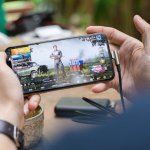Using video gaming to improve education in medicine, Part 2

In Part 1 of this article, we sat down with Dr Eric Gantwerker and Dr Peter Lio, Director and Lead Physician Adviser respectively at Level Ex, a company using full gaming technology to help doctors learn and develop strong instincts in areas which, for instance, they would not see regularly in real life.
Part 1 ended with the doctors describing the way in which Level Ex was working with both industry and education (a combination also etched on Hybrid’s corporate heart), to deliver medical training and develop medical instincts, free at the point of need, through an innovative financial model.
We asked them to expand on that model.
PL:
We have this bizarre situation where some of the residents or medical students will come and rotate and they’ll say, “Oh, wow, I’ve never seen anyone use this medicine. I don’t know anything about it.” That is a disservice to our patients, and it comes from not allowing business, or Big Pharma, anywhere near even the medical education process.
THQ:
Medicines and treatments are evolving all the time, getting approved and so on, but if medical students aren’t officially “allowed” to know about them, it creates a vacuum of expertise that has to be caught up on when they graduate?
PL:
Yes. But of course, on some levels, it’s right to keep business and education separate – you don’t want companies just coming in to shill their latest product as part of the learning process. So you have to find a way that’s clean and useful and you know, pedagogically sound, that’s not sleazy in any way, to get the message out there to the learners who need it. And I think that’s kind of a magic trick in and of itself.
Performing the trick
THQ:
How do you make the business case for using gaming technology in medical skills development, though? How do you actually perform the magic trick?
EG:
From the very beginning, Sam, our CEO, really espoused model that this needed to be free to the end user. We’re all about access and democratization. And I think in that mission to advance the practice of medicine through play, there has to be a way a realistic way to fund that. A lot of institutions, a lot of hospitals, a lot of schools have done pilot programs that have been phenomenal. But the problem is they don’t know how to scale. And they don’t know how to keep access and keep content going.
We want to keep this free, we want to give this nugget of information in an accessible way to healthcare professionals, we don’t want them to pay for it. We want them to be able to access it anywhere, anytime and have just in time learning, we want them to have these micro-learning moments, which is everything that is coming out of the pandemic right now. And there’s a fundamental way that we need to fund this. And that’s by going to some of the folks that have a vested interest in this industry to help offset the costs for the research and development.
Unfortunately, it’s not cheap to make this content both high quality and available free to those who want it. And the way that we offset it is we go to those who have those opportunities to spend, but we do it in a wholesome way that keeps it separated from that sleazy stuff of hawking products to learners.
Who pays?
THQ:
What’s your record of success like, because that’s a funding model that sounds practically antithetical to the American system – “We don’t want anybody to pay for anything, so instead, you give us money?”
EG:
Well, we don’t want our end users to pay for it. But then the end users of Facebook, Instagram, all these other free services, don’t pay for their social media access either. The way you monetize is through advertising, but we don’t do sleazy banner ads, we create interactive experiences that fill a knowledge gap for our clients and partners. And that’s not just industry that’s grant-based businesses, too. we’re working with TRISH (the Translational Research Institute for Space Health), which is the research arm of NASA. We’ve done work for the IPF Foundation, we work with the American Society of Anesthesiologists, so it’s not just industry that’s offsetting the cost of this research and development. It’s everybody who has a has an audience and needs to get information out to that audience.
The Fitbit factor
THQ:
So you work with respected bodies and companies, they fund the research and development, and then it’s available free to the end users at the point of need? We’ve touched on the fact that it makes intuitive sense that gamification gives a better level of retention and develops intuition better than traditional book-learning. If your business model depends on getting money from organizations based on that fact, what level of evidence do we have that it’s delivering that?
EG:
Well, weirdly, it’s actually seemingly not intuitive for some folk. I was at just at the American College of Surgeons giving a talk, and they specifically asked me what’s the evidence for video games? Because for some people, it’s not intuitive. And part of the problem is that people are used to “gamification,” which is the assumption that if you take elements from gaming and apply it to learning, that automatically, intuitively, it should be more engaging.
Unfortunately, the evidence doesn’t point to that, because not everybody is motivated by competition. Not everyone is motivated by leaderboards and badges, right?
But that’s the Fitbit Factor, and it’s creeping into every aspect of our daily lives, from how many steps we walk to how many books we read.
THQ:
It’s certainly becoming endemic in business, too – gamification is key to getting some tasks done on time these days.
All games are not created equal
EG:
Right. But there’s a difference between the gamification of tasks and true, good design of video games. With the second, we have good evidence that it can support learning and transfer to the actual environment, in everything from psycho-motor skills to cognitive skills, judgment, decision making, analysis, all of these skills we know transfer, and there’s good evidence in the literature, but you can’t lump all games together.
You can’t say World of Warcraft and Scrabble are the same. And Modern Warfare games are all going to have the same learning outcomes, right?
So it depends on what you’re trying to teach. It depends on what needs to transfer, what knowledge base people come in with. But we have evidence that games work, and we have evidence that our games work. And that builds the foundation to take away the cynicism in traditional medicine, teaching that games do work, in specific ways where you really take advantage of that deep game design, and not just take superficial layers.
Examining the evidence
THQ:
You’ve got evidence that your games work? What does the evidence look like?
EG:
We obviously do our own studies, but we’ve had independent studies too. One study on our Airway Ex game showed that people who played it for 30 minutes visibly improved their ability to perform intubation in a simulated environment. They were faster, more confident, they were better. We have a study coming up in a few weeks on our Top Derm game, which Dr Lio was involved in creating, and we’re confident that will really showcase what we can do when we combine good game design with a tangible knowledge gap.
Looking to the future
THQ:
How many medical games do you currently have in operation?
EG:
We’ve been around since 2015, and now we have Airway Ex for anesthesiologists, we have Gastro Ex for gastrointestinal doctors, we have Cardio Ex, Pulm Ex for pulmonary doctors, and now our latest launch, Top Derm. Those are our core games. There’s a lot of material in different specialties outside of those core games, but we really have those five.
THQ:
And are you looking to expand beyond that core five?
EG:
Absolutely. We have the opportunity to go into every specialty, and we have a very specific way that we think about where the need is, where the opportunity is, where technology and our design really fit very well. And we should be announcing relatively soon a new specialty that we’re going into as a core game. There’s so many we want to do, but really, it’s about getting the support, the scalability and meeting the need and the knowledge gap.
PL:
I’d love to see us really continue to go lower and lower in terms of the education scale. Right now, the target is practicing specialists – you know, physicians and specialists. But I love to think about how we can we bring this to residents in training. How we can bring this to medical students.
This might be controversial, but I often wonder about whether we should even open it up to patients, because I think patient education is an enormously important aspect of medicine. I’m a board member for the National Eczema Association. We’re a non-profit patient advocacy group that’s driven towards education and support. And oh, could I use a tool like this in my toolbox, with the ability to show somewhat rare circumstances, the ability to practice over and over, the ability to explore a space in a very unique way that you can’t do in any other way?
All of these things would be invaluable to patients and caregivers of patients. We’re not really a sim company, that’s a different concept, but I think we can take some of the sim ideas and premises and bring them to the video game. And then we could bring the best of both worlds for potentially anybody, including patients.
An expandable model?
We said the use of video gaming in a medical setting was interesting in its own right. But imagine if training in other, more business or technology-centered subjects were to be shifted from a monodirectional learning experience into a true video game environment. Even at a C-Suite level, there would be benefits to be gained in terms of instinctual understanding of issues, and safe, bounded decision-making practices. Level Ex may be a niche medical gaming company, but in terms of what it’s discovering about how we learn to do almost anything, it could have benefits across the business world.










